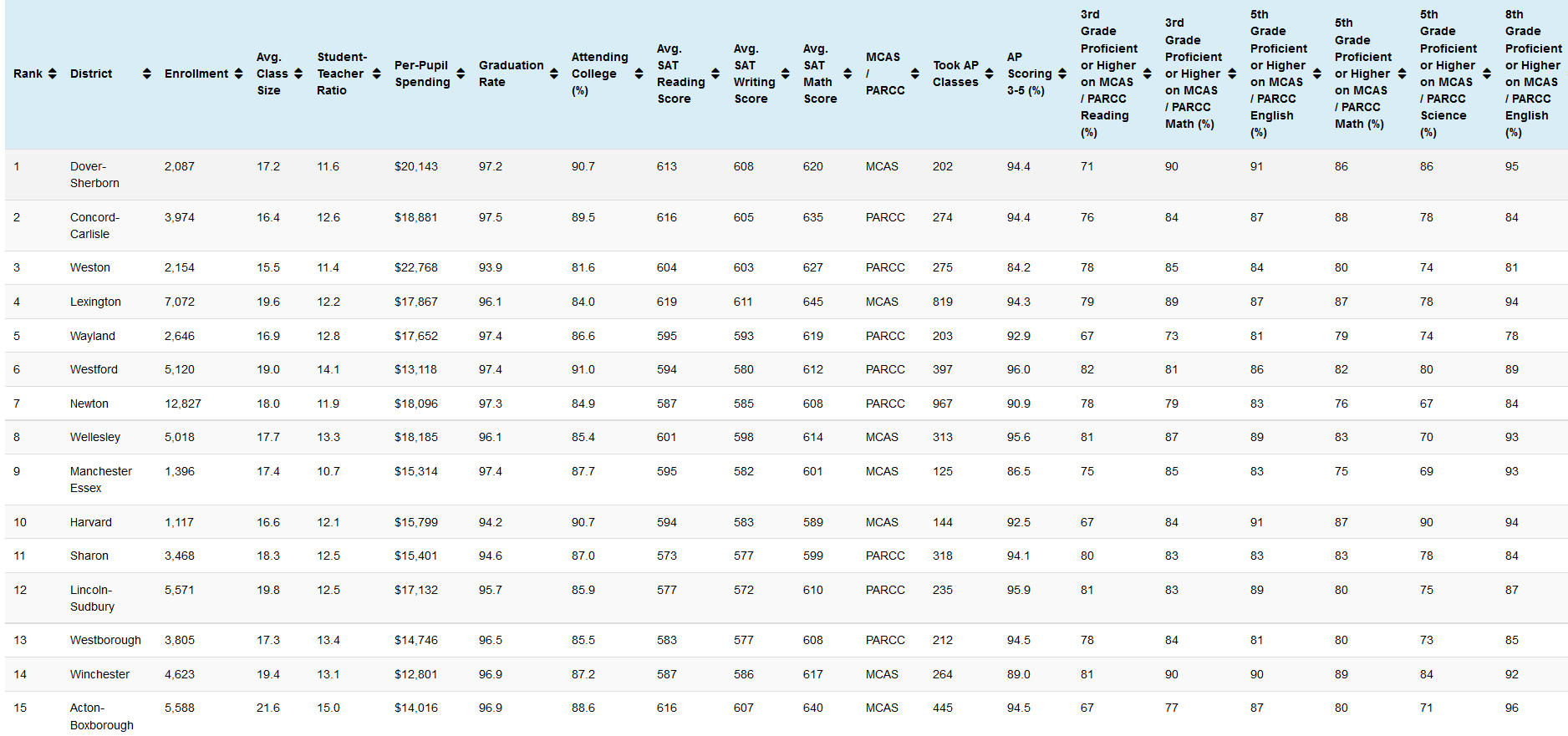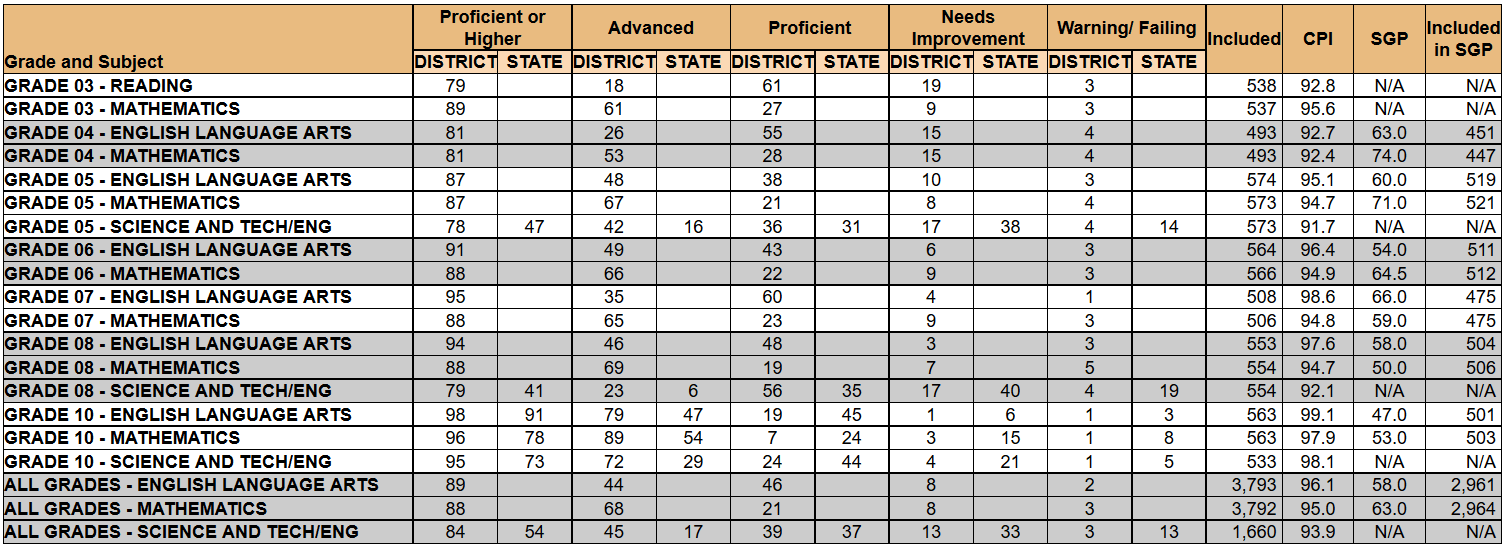School System Evaluations
School systems play a large part in the demand, and the subsequent 'health', of the real estate market in a town and its important to understand how property values are affected when a town has a school system with a strong reputation.
The quality of a school system in a town is often the most important factor that buyers weigh when deciding on which town they will make their next home purchase. This is true not only for families moving in from out of state, but also for families who presently live in a poor school system town and whose children are becoming school age. Consequently, the quality of the school system plays a large part in determining the demand on housing in that town. As Massachusetts is a town-based state, rather than a county-based state for services, individual towns desirability directly contributes to the 'health' of the real estate market in that town.
For families moving in from out of state, there are generally three criteria that they use to decide on which town to buy in.
- Commute distance/time into Boston
- School system quality
- How much house they can buy for their money.
Compromise often occurs with one of these criteria and the majority of the time, families compromise on how much house they can buy for their money, or the commute into Boston. Rarely do people compromise on the quality of the school system. This means that demand is consistent for homes in a town with a quality school system, and subsequently, resale value remains strong.
How people evaluate the school systems to determine the town they decide to buy in is the subject of this blog post.
There are a number of sources of information about a school system. Basic information can be found at a town's website, but generally when buyers are looking to evaluate the school system they require more indepth information.
The following are sources that some buyers use, and a brief explanation of the source, in no priority order.
Boston Magazine:
Each year Boston Magazine rank school systems. In 2017 they ranked the best public school districts including elementary, middle and high in the rankings. When reviewing a ranking system it is important to review the analysis to understand what they are ranking on, and how much weight they apply to various criteria - these may or may not align with criteria that you agree on.
Boston Magazine's 2017 edition has lots of data easily accessible. Included in the data are metrics which relate to 'In the Classroom' where the enrollment, per pupil spending, student-teacher ratios, graduation rate, # of students taking AP classes , and metrics which relates to Achievement Scores with scores for MCAS/PARCC subjects in 3rd, 5th, 8th and 10th grade reported, and also Average SAT scores in Reading Writing and Math, and ranks the125 schools within I-495 based on these criteria. An example of the data in the spreadsheet is below.
MCAS results:
Each year, students across Massachusetts are tested in Math and English in 3rd, 4th, 5th, 6th, 7th, 8th and 10th grades. In several grade levels they are also tested in Science & Tech. The raw scores are available online and are often used by buyers to review the raw data and evaluate the school system strength for themselves.
To explain the raw data a little better, review the following example below. This data is the data for Lexington, in 2016. For example, reviewing the All Grades data, we can see that in Science & Technology the state average for Proficient or Higher is 54, and Lexington scores 84 in this category. For Advanced the state averages 17, and Lexington scores 45. In the Proficient category the state average is 37, Lexington 39. In the Needs Improvement the state average is 33, Lexington 13, and in the Warning/Failing the state average is 13, Lexington 3. Clearly, when reviewing the data for Lexington you would consider the school district as performing well above the state average.
Not only can you review the relative scores for the district and the state across grade levels, you can review how each individual school performed. In the example below Lexington High school is shown. In 2016 100% of students scored in the Proficient or Higher category for English, with only 19% being proficient with 81% being Advanced, and no students Need Improvement. In 10th grade Math, 97% were Proficient or Higher, 91% of those in the Advanced category, 7% were Proficient and 2% Needed Improvement. In 10th grade Science, 97% were Proficient or Higher with 73% Advanced, 24% Proficient and 3% Need Improvement.
In this method, you can compare school systems to identify strong school systems, average school systems and poor school systems. Once you know what a strong school systems raw data looks like you can use this to compare others to see how it rates against a good one.
GreatSchools.org:
Many buyers use the website GreatSchools.org to evaluate a town's school system. Type in the town that you are considering and GreatSchools shows you a listing of all of the schools within the town, and their score out of 10. You can then delve into how they rated the school and why they rated the school the way they did. You can investigate the school in more detail, seeing the diversity within the school, reviews of the school, MCAS data, and all of the extracurricular activities offered at the school, along with many other pieces of information.
Along with the various resources that provide ranking, or raw data information, its important to also understand the culture that exists within a town with regard to the value that the townspeople place on the school system. Because of Proposition 2.5 (an explanation of which is given in a prior blog and can be found on the website), if a town has a requirement for an amount of money to be spent on the school system that cannot be funded by the normal tax revenue collected by the town, then the townspeople get to vote on an 'override' (to Prop 2.5). This override vote is generally for specific projects, and increases the property tax payable by each resident for a defined number of years to fund the project. If the culture in the town is to consistently vote these overrides down, perhaps because the town is multi-generational and many townspeople's children have already passed through the school system and see no need to supply additonal funds, then the lack of funds can result in a gradual decline in the school systems performance, with a subsequent reduction in demand for real estate in the town.
If you would like an estimate of what your home would sell for in today's market I would be more than happy to come by, have a look at your home, and then provide a CMA (comparative market analysis) which will provide you with an estimate of what your home should sell for, along with a marketing plan to get maximum exposure for your home.
If you have any questions about any of this then please don't hesitate to reach out to one of us. We would be more than happy to help.







